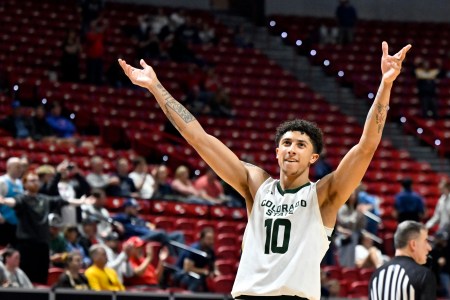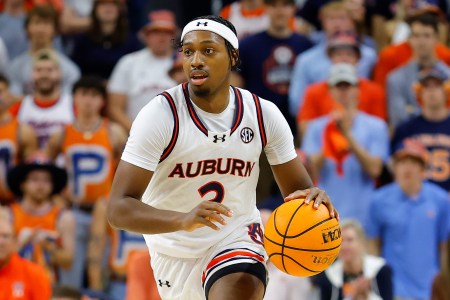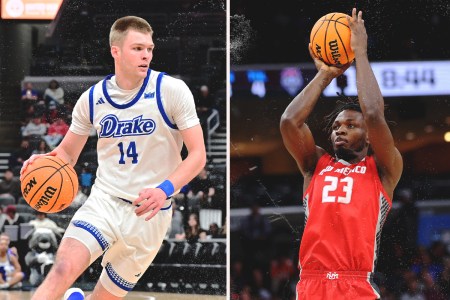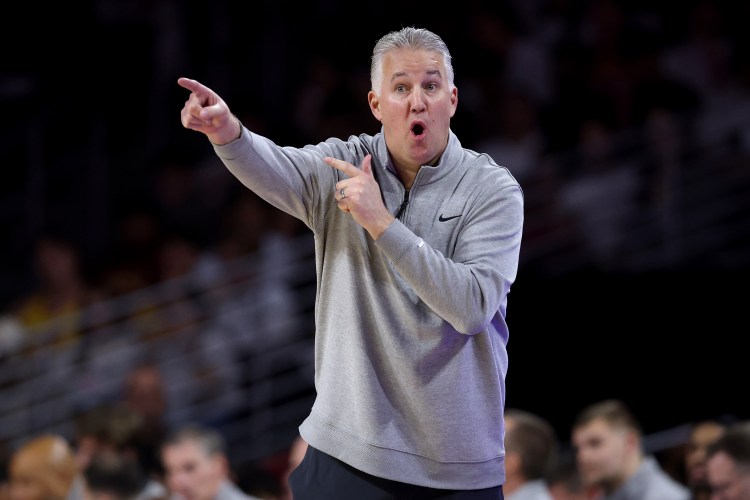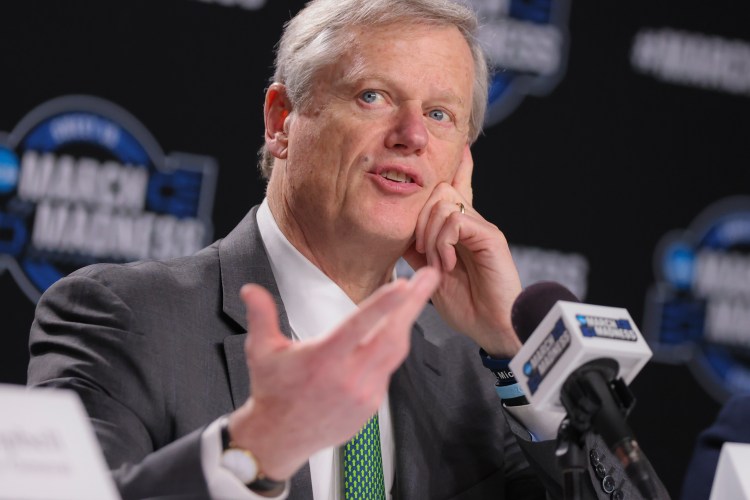Missouri coach Dennis Gates trusts his instincts, but he prefers to plan. During his 22 years as an assistant and head coach, Gates has filled two large notebooks with jottings that lay out precisely what decisions he should make should various scenarios arise. So when Gates’ 15th-ranked Tigers led No. 4 Alabama 110-98 Wednesday night in Mizzou Arena with 1.5 seconds to play, he knew exactly what he wanted to do. He called time out, went over to the scorer’s table and followed his plan accordingly:
It was an unconventional way to close out a remarkable win. The 110 points was the most Missouri has scored over an SEC opponent since joining the league 13 years ago. The victory lifted the Tigers into a tie for fouth place in the brutal SEC with a 9-4 record (20-6 overall). Yet, it was Gates’ late-game crowd control that garnered the most attention, especially on social media. Asked on Thursday why the public was so intrigued, Gates, 45, replied, “It’s different. No one has deliberately called time out to clear the court. We talk about how often (court storms) can put kids or student-athletes or coaches from opposing teams in compromising situations, but that’s what I would want done for me.”
Missouri is different all right. Last season, the Tigers went 0-18 in the SEC (8-24 overall). They were far from the first school to go winless in its league, nor is this the first time a program has reversed its fortunes in stark fashion. Yet, this is surely the first time this kind of sea change has come under the stewardship of the same coach, with a roster that includes three returning starters. Besides beating Alabama, Missouri also owns road wins over No. 2 Florida and No. 21 Mississippi State plus a home win over arch rival Kansas. The Tigers are ranked No. 13 in the NET and look very much like a team that is capable of becoming the school’s first-ever Final Four team.
To be fair, Missouri players missed a total of 111 games last season due to injuries or illnesses. That included John Tonje, the 6-foot-5 guard who was lost in early January to a foot injury and is now having an All-America caliber season at Wisconsin, and Caleb Grill, the 6-foot-3 senior sharp shooter who suffered a season-ending wrist injury in early December and is now the Tigers’ third-leading scorer at 13.4 points per game. And though Gates brought back Grill and full-time starters Tamar Bates and Anthony Robinson, he replenished his roster with 10 new players — five freshmen and five transfers.
Still, to go from 0-18 to Final Four contender in a single cycle does not happen unless it is carefully planned, resolutely pursued and deftly executed. And much of the credit for that goes to the head coach.
When it came to dealing with a winless season, Gates drew on the wisdom he got from his former boss at Florida State, Leonard Hamilton, who spoke often of the 0-18 Big East season he endured at Miami in 1993-94. “Most successful people are only successful because they’ve gone through something and gotten to the other side of it,” he says. When his new players arrived on campus last June, Gates recognized that he had produced an upgrade in talent, but also a great challenge with respect to to chemistry. He started working on team bonding immediately with the help of renowned sports psychologist Dr. Joe Carr, whom Gates first met when he was a player at Cal and has used as a consultant for all of his teams.
Missouri’s progress this season is embodied in the improvement of Mark Mitchell, a 6-foot-8 junior forward who scored a career-high 31 points in the win over Alabama. Mitchell is a Kansas City native and was a McDonald’s All-American at Sunrise Christian High School. He originally committed to Duke and was a full-time starter there, averaging 11.6 points and 6.0 rebounds as a sophomore. But with the impending arrival of the Blue Devils’ Cooper Flagg-led freshman class, Mitchell wanted to find a program where he could have a prominent role. The fact that Missouri already had Bates, a fellow Kansas City native who has known Mitchell since they were middle schoolers, was a big help.
Mitchell is both skilled and versatile, especially at the defensive end, but as is often the case with transfers, it took him a while to assert himself offensively. Gates was frustrated at times with Mitchell’s reluctance and even benched him during the second half of the Feb. 8 home loss to Texas A&M. Ever since then, Mitchell has been more aggressive. He leads the Tigers in scoring (13.6 per game) and blocks (0.9) and ranks second in rebounding (4.7).
“He’s one of the most unselfish human beings I’ve ever seen,” Gates said. “He doesn’t want to ruffle any feathers. His growth comes from my demands. I finally told him, Mark, I’m going to sit you down if you’re too unselfish. There’s a healthy way to be selfish.”
It’s one thing for a coach to give such orders, but if the other players don’t echo those words, the message won’t resonate. Bates was a critical help in this regard — “When you see these two interact, you see brothers, but you also see competitors who are willing to tell each other the truth,” Gates said — but the conversation also got an important boost of candor from Jeremy Sanchez, a fifth-year senior walk-on guard and tri-captain. Sanchez previously played for Gates at Cleveland State and then transferred to Saint Leo a Division II school in Florida. Gates encouraged him to transfer to Missouri last summer. “He was recruited to be a leader,” Gates says. “He has tough conversations with the trainer, the strength and conditioning coach, the assistant coaches, his teammates and Coach Gates. That’s the type of kid Jeremy Sanchez is. He will give us real information.”
The first sign of just how much Missouri had improved came on Dec. 8 when the Tigers knocked off Kansas 76-67 at Mizzou Arena. As the final seconds were ticking off the clock, Gates noticed the students were preparing to storm the court. He halted play and invited KU coach Bill Self to shepherd his players off the floor so they wouldn’t be injured. The horn sounded, the students rushed — and the SEC fined Missouri $250,000. Part of the reason Gates decided (in advance, of course) that he would ask the students not to storm the court against Alabama is because a second incident would have resulted in a $500,000 fine.
Gates is not opposed to court storms — “It’s part of the student experience,” he said — but he was worried about the safety not only of the Alabama players, but also the fans themselves. “Sometimes, coming down those steep bleachers, you can have some casualties,” he said. He also acknowledged that he hoped to change the way Tigers fans think about their program. “The headline is upset, right? That’s the headline,” he said. “It wasn’t an upset for those inside the locker room.”
Next month, Gates hopes to do another thing that is different — take Missouri to the Final Four. The Tigers have had four Elite Eight appearances, most recently in 2009 under Mike Anderson, but for all the history behind this proud program, most notably during the 20-year tenure of Norm Stewart from 1979-99, it has never reached the game’s ultimate stage. “That’s one of the reasons why I believe this is one of the best jobs in college basketball,” Gates said. “In my first press conference, I mentioned my goal is to get our institution where it rightfully belongs.”
Missouri in the Final Four would be an unprecedented rags-to-riches story, but it is not hard to imagine Gates pulling it off. After all, that’s what he has been planning for.



